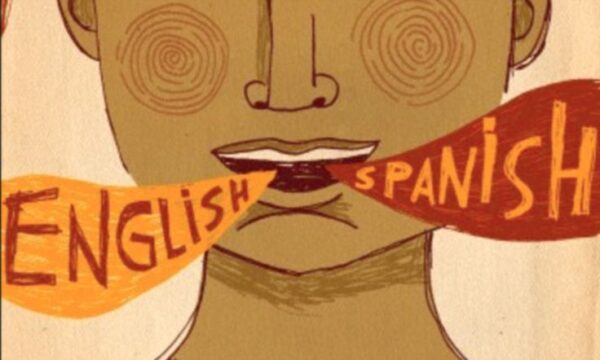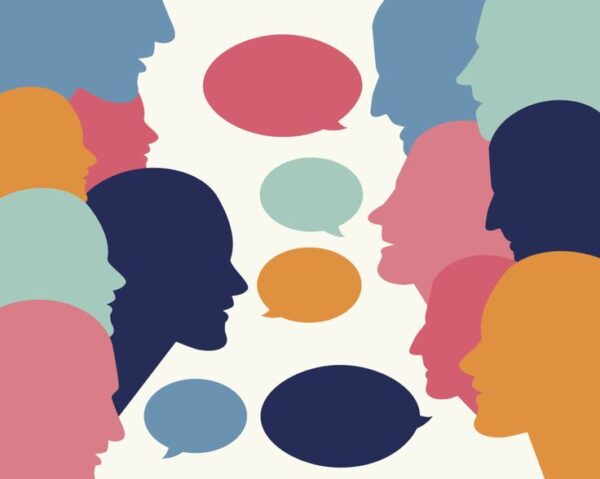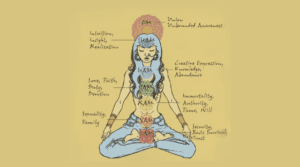“A language is not just words. It’s a culture, a tradition, a unification of a community, a whole history that creates what a community is. It’s all embodied in a language.”
-Noam Chomsky
There is a familiar scene in the Netflix series “Emily in Paris” between Emily and Gabriel that perfectly embodies the limitations and depths of language and how it robs us of transmitting what we feel, what we truly experience, and what is unfiltered in its elemental state. I asked Juliette, my French friend, to interpret and translate that exact scene for me, and she reemphasized, even in her interpretation, that the words used are much more robust and sharper than whatever translation exists:
Emily: You don’t communicate with me
Gabriel: Maybe that’s something to do with the fact that we communicate only in your language, not mine.
Gabriel: Do you want to know how I feel?
Emily: Yes – yes, I really do –
Gabriel: Je me sens volé. Je me suis laissé rêver d’un avenir heureux avec toi, une étoile Michelin, un bébé… mais à la fin j’ai passé tellement de temps avec toi, essayant de te convaincre que nous en valions la peine – alors que tu n’avais même pas essayé d’essayer – que maintenant je suis saigné à blanc. Je ne crois plus en rien ni en personne, mais je dois quand même passer à la télé et essayer de convaincre les français que j’en ai rien à foutre des coquilles Saint-Jacques. Alors oui, nous avons des problèmes de communication, je ne vais pas vous contredire là-bas, mais ce n’est certainement pas de ma faute.
Emily: Please, I don’t understand.
Gabriel: Exactly.
In this conversation, Gabriel expresses his frustration with the limits of language and how Emily’s language barrier prevents her from fully understanding his deeper emotions. Emily, from a United States Chicago-based Corporate Marketing Firm, moved to Paris with a language deficit, struggling to work, live, and make sense of the world around her. A couple of sexcapades and thrillers, crazy mistakes, and everything else happens about French life, culture, and fashion – but the overarching theme for me is how much language limits someone.
I’ve lived in Madrid for about three months and struggled with many things since I moved to this big city. When you move to a new city, a few things matter: the first time you find your way by public transport unhindered (metro or bus), make a successful transaction in the local currency, make an order at the restaurant, make a telephone call to a local agency, and the first time you hold a five-minute conversation in its language. I spent three months in Madrid and have only done the first three.

Growing up along the West African shores, my heart carried an unusual yearning for Europe. Its cobbled streets and squares, museums, arts, culture, and local color; its past, layered with depths of history transcending time, space, borders, and limits—I’ve wanted to travel here, to live here, to lift my face to the sky and inhale the fine upbreathing air, and stand in touching limits of all the things I’ve only dreamed and read about as a kid with seemingly farfetched ambitions. I knew many things already about this place before moving here: the writers and artists, scientists, monarchs, political and religious movements; the wars and revolutions; names of capital cities and historic landmarks; I followed football across Europe religiously and idolized some of the biggest stars – but everything I knew fell short of what should’ve been the most essential thing: LANGUAGE. I have always been aware that there are over 20 languages spoken across Europe, and more than 95 percent of people I have met speak at least three or more, a small portion, two, and learning a third or so – but I speak only one. When I interact with these people daily I often wonder what language multilingual think or dream in. I get to see how it alters their moods and characters. I love how the accent rolls right off their tongue with every switch, but I can’t even begin to start.

Worse, for someone like me who has spoken only English all my life, given where I was born and lived (Liberia), sometimes when others complain about my accent and don’t understand some of the words I use, I ask myself inwardly if I’m even speaking English enough or if it’s some step above or below what they understand and not on the same level. The tragedy is that your inability to speak other languages limits how you connect with people and what conversations you have. My Iranian friend tells me there are about seven different ways to say I love you in Farsi, yet it means the same thing. My Italian friends can only translate certain things from Spanish to Italian but can’t filter down to English. Saudade cannot be literally interpreted in English from Portuguese.And my Romanian roommate, all the time, screams face din rahat bici or made a whip out of shit, to describe her efforts with doing so much with so little.

During breaks and at dinner tables, there’s an aura of a new world that unravels and is filled with languages. It subtly reminds you that you exist on the periphery of society, facing an intangible barrier to entry into this world beyond you. Because there are certain jokes you will never get, statements will always pass over your head – I experience this every day, in class, on coffee runs, on museum tours, on the football field – everywhere I go, there’s always this one statement: “Sorry Bill Ivans, there is no way to say that in English.” I am surrounded so much by language daily; in my class of 25, there are 20 nationalities. When you attend job fairs or internship experiences, employers ask: Do you speak Spanish? And it sinks my heart further. I have had a few good football games during practices with the IE football club, but I often get confused and play terribly. There are Spanish slang and shouts I don’t understand, such as whether to pass immediately or watch out for an opponent and it undermines my performance.
You can’t fully participate in another culture without its language. Without it, you are constantly reminded that you are a stranger and the world is gradually closing around you. This rude awakening gnaws at your existence and keeps on you the shores. Only language launches you into the deep and gives you new horizons. The limits of my language are the limits of my world, says the German philosopher Wittgenstein, and I believe that our worlds can only grow smaller when we censor our most vital dialogues – unspoken by our limitations with language.




